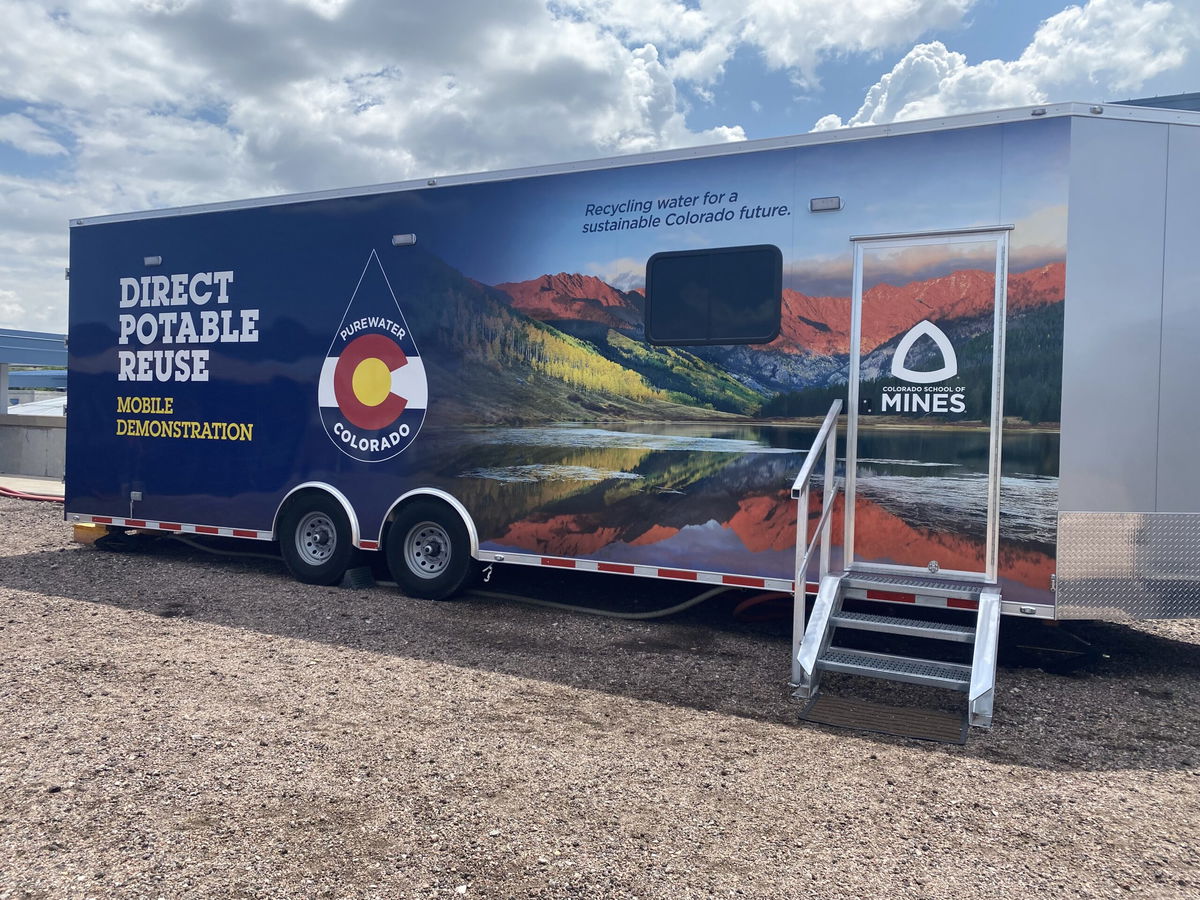Colorado Springs Utilities showing off future of water reuse

COLORADO SPRINGS, Colo. (KRDO)-- A group of Colorado engineers are working to develop a way to safely recycle water from toilets back into drinking water.
Colorado Springs Utilities has partnered with the Colorado School of the Mines and Carollo Engineers to create innovative mobile technology that purifies recycled wastewater to drinking water levels.
The PureWater Colorado Mobile Demonstration is used to show a mobile version of a carbon-based direct potable reuse process. It's something water usage experts think people in Colorado Springs are eventually going to need.
"We're the second-largest city in the state," Kirk Olds with CSU told KRDO. "We're not located on a significant waterway or river, and so that poses some unique challenges for the community in terms of its sustainability long term, unfortunately."
Olds says there are a couple of ways to turn nonpotable water into drinking water. One method is through what's called reverse osmosis.
But what makes this mobile lab unique is that it's specifically designed for the type of water we have in Colorado, using carbon filtration technology instead.
"The reason that carbon-based technology makes sense for a utility like Colorado Springs, or frankly many of our Front Range peers, is that much of our water supply is first-use, so it is not highly mineralized or doesn't have a lot of those total dissolved solids in the water."
Olds says to think of dissolved solids like putting salt in water. It disappears over time and you don't see it, but if you taste it, it's definitely there.
But in Colorado, we have fewer minerals in our water and can bypass the more expensive and lengthy reverse osmosis process.
"It's absolutely scalable," Olds says. "All of the technologies that are used inside this trailer are used in water treatment processes today. The combination and sequence of them is what's somewhat unique."
With a limited water supply in the colorado springs area, CSU believes this is eventually the future of some, but not all of your drinking water.
They just hope customers will be open to the idea when they inevitably incorporate it on a larger scale.
